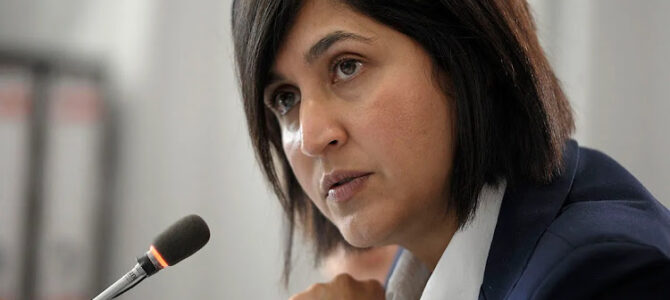A Republic of South Africa High Court barrister has presented opening arguments at the United Nationas International Court of Justice in the Hague against what it claims is Israeli genocide being committed against Palestinians in the Gaza Strip.
South African High Court attorney Adila Hassim who has also served as a judge in the past told the hearing in the Hague Thursday Israel was in violation of at least four articles of the 1948 Convention for the Prevention of the Commission of the Crime of Genocide. She said it wasn’t incumbent upon the ICJ to pass an immediate verdict on the accusation and that preventative measures including an immediate cease-fire were needed.
Hassim was one member of a South African legation of eight, all of whom also gave presentations. Israel also sent at least one judge to the hearing. Israel is signatory to the Genocide Convention which grew out of the Nuremberg trials to address the new international crime of genocide as the world attempted to come to terms with the Holocaust.
The United Nations International Court of Justice was established under and along with the UN Charter in 1945. It is distinct from the International Criminal Court founded in 2002 by international treaty among participating member-states under the Treat of Rome and is not a branch of the UN. The UN’s ICJ is essentially an international court of arbitration between states in conflict and is one of the UN’s six major organs. The non-UN ICC claims criminal jurisdiction to try war crimes, crimes against humanity and genocide. When the ICC issued a finding calling Russian president Vladimir Putin a war criminal in a case concerning child war refugees in the Ukraine, South Africa’s president Cyril Ramaphosa said his country was withdrawing from the ICC due to the court’s bias. Ramaphosa, SA foreign minister Naledi Pandor and the ruling African National Congress went back and forth on withdrawing from the ICC for several months in the run-up to a BRICS conference in South Africa which Putin had been scheduled to attend. Eventually the ANC party postponed a final vote on withdrawing and Putin appeared via video link instead of in person at the BRICS summit. The ICC arrest warrant for Putin has since been ignored by several countries in the Middle East. South Africa’s suit against Israel at the ICJ has been conflated incorrectly with South African recognition of the ICC by some media outlets, an issue which is apparently still pending within the ANC party ranks.
Full story here.


